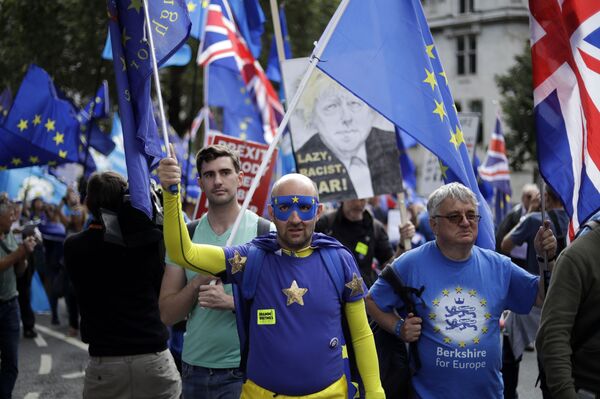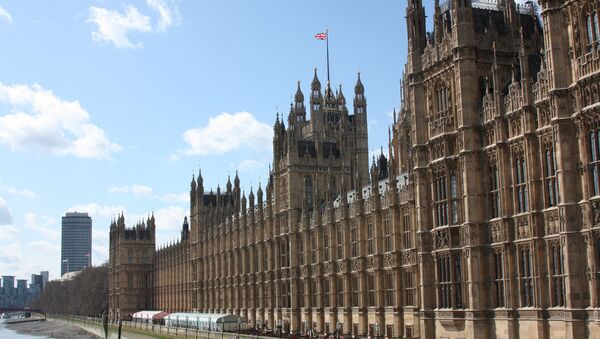MPs are set to vote this Friday on Prime Minister Boris Johnson’s plan for the UK to leave the European Union on 31 January.
The EU (Withdrawal Agreement) Bill, reflecting the Brexit agreement Johnson reached with Brussels in October, was introduced in Thursday's Queen's Speech during the formal State Opening of Parliament, mapping out the Conservative government's priorities for the next year.
This is the first opportunity for the MPs to debate the bill in the House of Commons at its second reading - a vote on its general principles.
With the Conservatives having won a commanding 80-seat majority at the general election held in the country on 12 December, the bill is not expected to come up against any major hurdles before parliament disbands for Christmas, writes the Independent.
It is expected to then be further scrutinised by MPs and the House of Lords early in the New Year, prior to Brexit's new 31 January deadline.
Ahead of the debate, Boris Johnson said:
“Today we will deliver on the promise we made to the people and get the Brexit vote wrapped up for Christmas. Now MPs will start the process of passing the bill. Then, at the beginning of the new decade, at the beginning of a new dawn for our country, our parliamentarians will return to Westminster to immediately finish the job, take us out of the EU on 31 January and move this country forward.”
The Revised Brexit Bill
The previous Withdrawal Bill had been narrowly approved by the Commons in October, but a government proposal to rush the bill through its remaining stages in just three days was voted down, prompting Boris Johnson to call a general election in the hopes of garnering a Commons majority.

Since then, the bill has been amended.
Among the most notable changes introduced is that it now legally prohibits the government from extending the transition period - during which a trade deal between the UK and EU will be discussed - beyond 31 December 2020.
Trade experts and EU officials have been saying that striking a free trade deal within 11 months will be a “struggle”, with European Commission President Ursula von der Leyen on Wednesday calling the timetable "extremely challenging". Thus, opponents of the revised bill fear it means the country might face a "no-deal" Brexit at the start of 2021.
Another change in the draft bill allows more UK courts to reconsider European Court of Justice rulings that have been retained in UK law after Brexit.
Other revisions presuppose requiring ministers to report annually to Parliament on disputes with the EU under the prime minister's withdrawal agreement, and repealing spent legislation that "now serves no purpose".
The revised text does not include earlier guarantees that existing workers’ rights will be maintained after Brexit, with the government pledging to deal with this issue in a separate piece of legislation, amidst opposition fears this might help "drive down" working conditions.
Boris Johnson, whose Tory Party triumphed in the snap elections on a pledge to "get Brexit done" by leaving the European Union on 31 January, said ahead of the debate:
"Next year will be a great year for our country - the year we get Brexit done, boost NHS funding, invest in infrastructure and level up access to opportunity and prosperity across our great nation."
We are going to unite and level up, bringing the whole of this incredible United Kingdom - England, Scotland, Wales, Northern Ireland - together. pic.twitter.com/xDtuivnB8n
— Boris Johnson (@BorisJohnson) December 14, 2019
The result of the Commons vote on the bill is expected at about 15:00 GMT on Friday.


